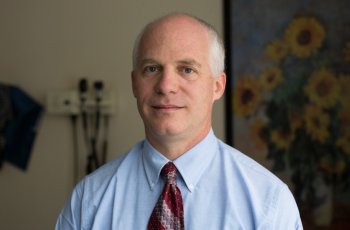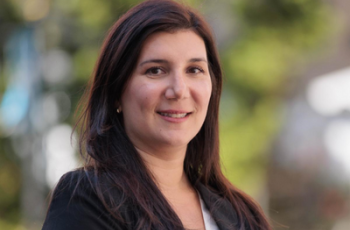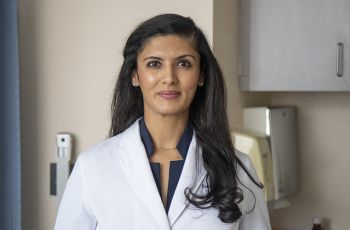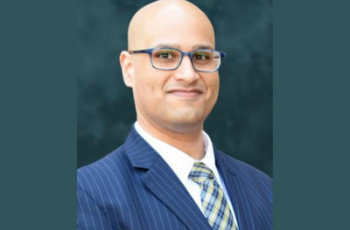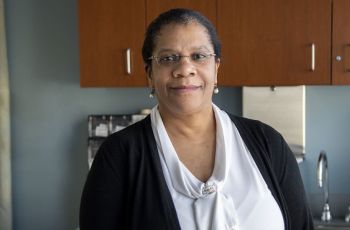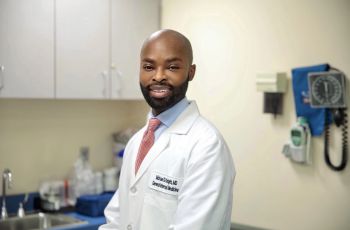News Archive
Nearly 250,000 people in the United States will receive a lung cancer diagnosis in 2022, according to the American Cancer Society. However, thanks in part to a drop in smoking nationwide, the number of new lung cancer diagnoses is declining steadily each year.
The George Washington University (GW) School of Medicine and Health Sciences (SMHS) is pleased to welcome LaQuandra S. Nesbitt, MD, MPH, immediate-past director of DC Health, to serve as the new executive director of the Center for Population Health Sciences and Health Equity. In this role,…
In this new role at the organization, Mansouri will work closely with the chief operating officer and the chairs of each department to help establish the GW Medical Faculty Associates as the preeminent source of clinical care in our region.
More than 100 people were in attendance, as Washington, D.C. leaders and representatives from Universal Health Services, the George Washington (GW) School of Medicine and Health Sciences (SMHS), and GW Medical Faculty Associates (GW MFA), cut the ribbon on a brand-new Cedar Hill Urgent Care…
Stork bites and angel’s kiss sound poetic, but they actually describe vascular birthmarks, skin changes that commonly appear at or shortly after birth. These marks may change over time, so it’s important to get a dermatologist’s opinion from day one.
The GW Medical Faculty Associates (GW MFA) is pleased to welcome Meghan M. Smith, MBA, as the Executive Director of Practice Operations in the Department of Medicine. In this role, Smith will work with executive, clinical, and physician leadership to develop and implement strategies, manage key…
The GW Medical Faculty Associates (GW MFA) welcomes Hitan Kamdar, MBA, MS, as executive director of patient access. Kamdar will be responsible for optimizing patient access to ambulatory care at the GW MFA. In this role, he will oversee call operations, the Unified Contact Center, provider…
The George Washington University will direct more than $50 million to fund 14 endowed professorships, further accelerating the progress of its academic medical enterprise in one of the most significant single investments in university history to support faculty.
As psoriasis sufferers know, flare-ups can be uncomfortable and anxiety-inducing, creating an unending cycle when stress then exacerbates those flare-ups. However, it doesn’t have to be that way.
Michael G. Knight, MD, MSHP, associate chief quality and population health officer at the George Washington University (GW) Medical Faculty Associates and assistant professor of medicine at the GW School of Medicine and Health Sciences, was named a member of the AMA Council on Ethical…

